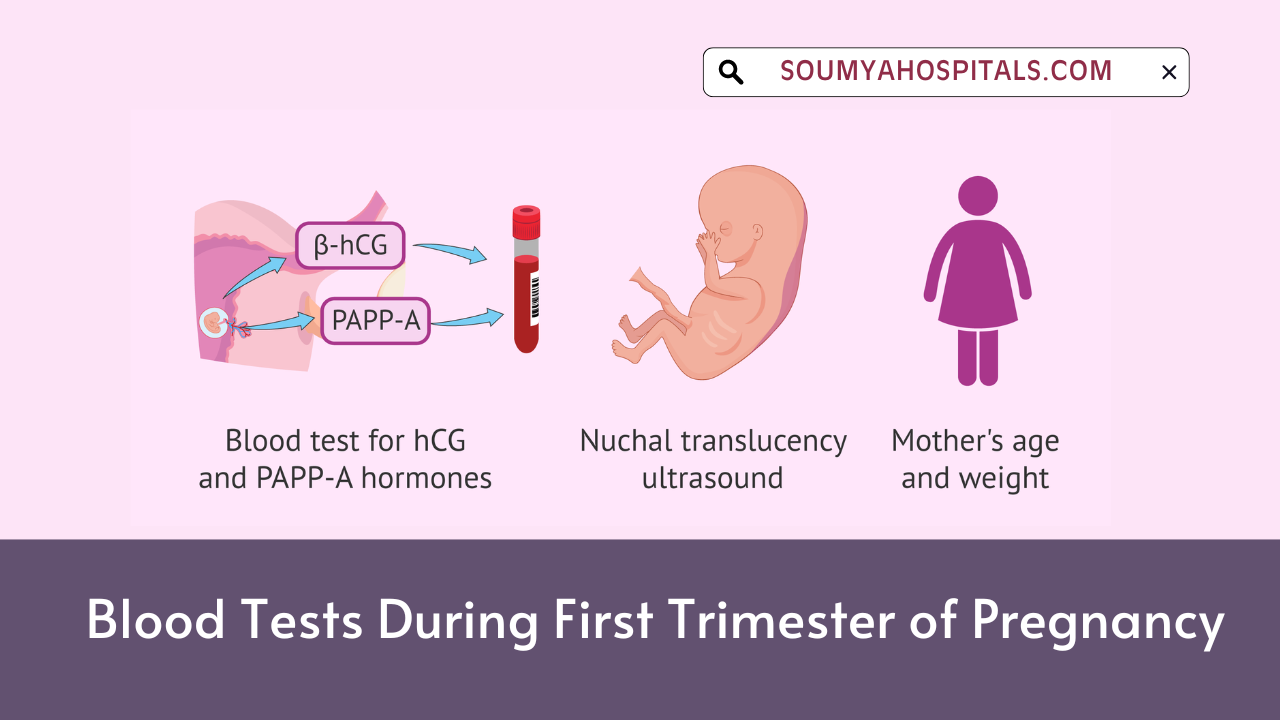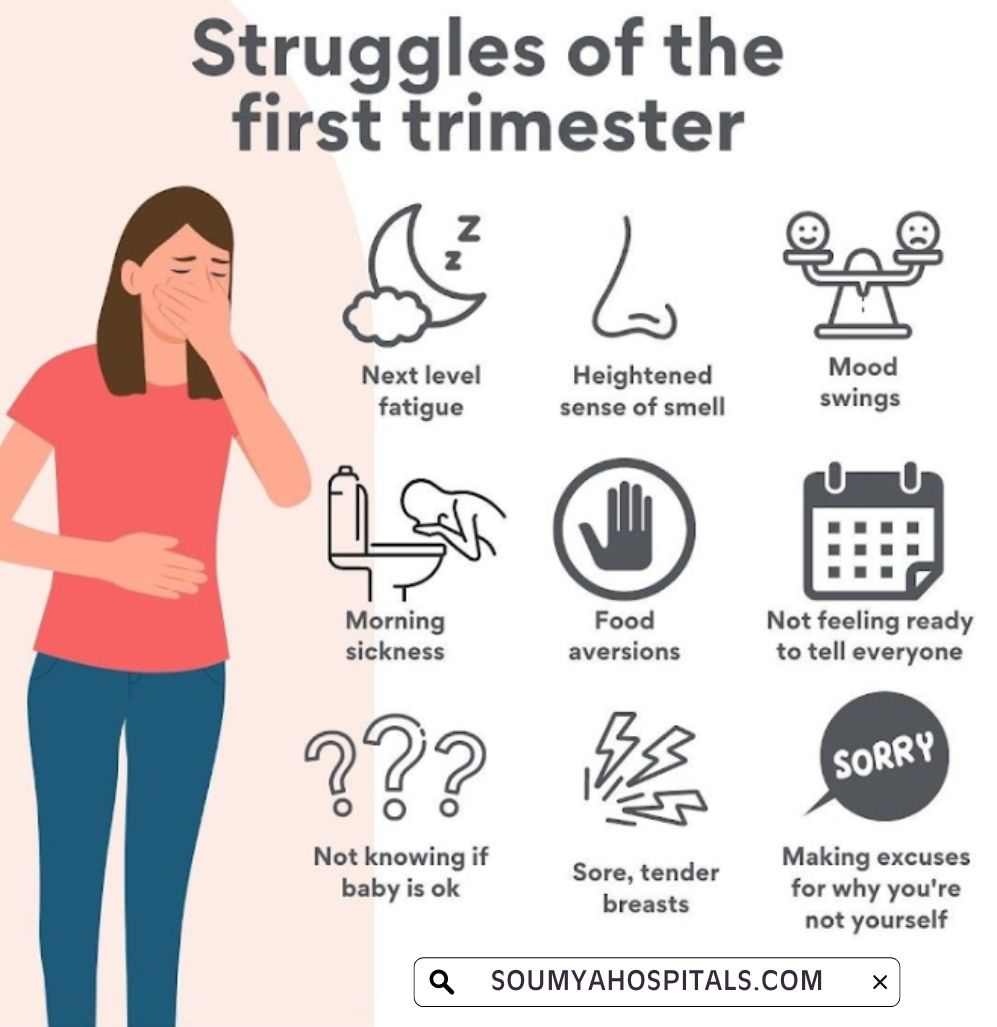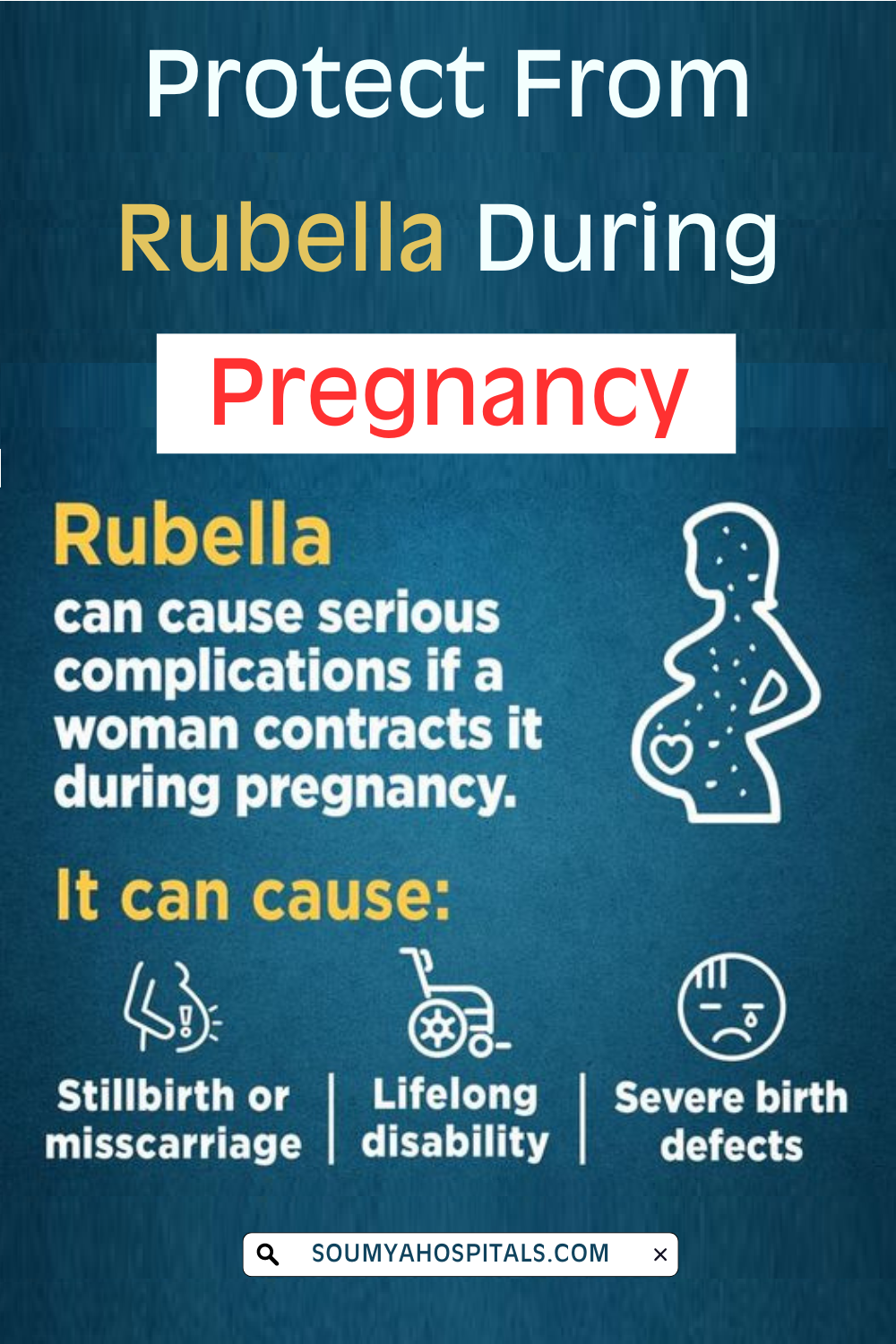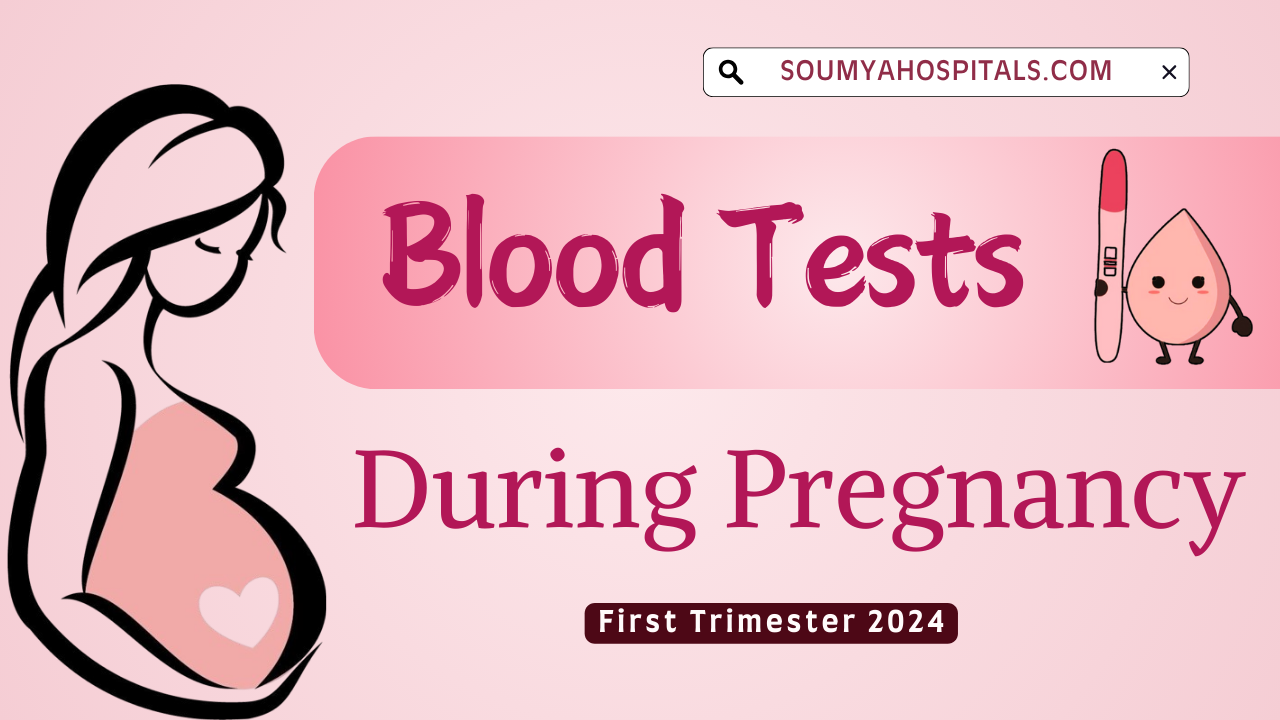Important Tests during pregnancy help check the baby's growth and mother's well-being.
Blood Tests in Pregnancy is a mandatory checkup for pregnant women, as it comes with many insightful results for doctors regarding your pregnancy condition.
The pregnancy phase deals with many changes in your body during pregnancy, knowing every bit of information related to your pregnancy is important to have a smooth delivery to your baby.
There will be both positives and negatives in a pregnancy. To prevent & secure from those negatives your doctors or healthcare providers suggest all types of pregnancy blood tests, screenings, ultrasounds, scans, etc.
Learn About: Iron Profile Test During Pregnancy
Blood tests during the first trimester of pregnancy come under antenatal care with many benefits such as confirming your pregnancy, testing your blood group, and detecting the health condition that may cause any problem during or after the birth.
To explore pregnancy blood tests first trimester, let’s continue your read and learn what is included in the prenatal tests of 1st-trimester pregnancy. Dive in!
Everything About Blood Tests During Pregnancy First Trimester
During the first trimester of pregnancy, expected parents-to-be visit the doctor or midwife to confirm pregnancy good news officially. To reveal that biggest news to parents-to-be, healthcare providers suggest taking the needed blood tests.

These blood tests will assess all types of health conditions of the pregnant woman and her fetus development. The tests included in the first trimester blood tests or screenings are as follows:
- Blood Type and Rh Factor
- Complete Blood Count (CBC)
- Rubella Immunity Test
- Hepatitis B and C Screening
- HIV Screening
- Syphilis Screening
- Thyroid Function Tests
- Genetic Carrier Screening
A detailed explanation of each blood test and screening will be covered for you in the next sections. Continue your read and find every single piece of information about the above blood tests.
Blood Type and Rh Factor
Blood Type Testing: After collecting the blood samples, examiners will go through the blood type test to know the blood group of the pregnant lady. Blood group testing is a quite simple and initial test during pregnancy.
Knowing the blood group at the early pregnancy stage is very essential as it helps in the future when you have any heavy bleeding (haemorrhage) during pregnancy or labor time.
Rh Factor Test:
What is Rhesus (RhD) Factor Testing? This is one of the common questions asked by pregnant women. You will also find your 'Rhesus (RhD) factor' along with the blood group in the first trimester pregnancy blood tests.
The result of the Rh factor will be declared positive or negative. When it is a RhD-positive blood type, it says that your red blood cells have enough protein called the D antigen on their surface. If you lack this protein in the blood, it results in the RhD-negative blood type.
In Australia, most people have a positive blood type and around 17% of people have a negative blood type.
If a person with RhD-negative blood has a baby with RhD-positive blood, there's a risk of the person's body producing antibodies against the baby's blood. It leads to "rhesus disease" or "haemolytic disease of the newborn".
To control this, the pregnant women will be offered an injection called ‘Anti-D’ at 26 to 28 weeks and 34 to 36 weeks of pregnancy. The Anti-D injection is safe for both the person and the baby.

Complete Blood Count (CBC)
Finding out the level of hemoglobin in your blood or full blood count is easy with the blood test in pregnancy. It results in the amount of red cells, white cells, and platelets in your blood.
Also, it is the best way to confirm the condition of anemia. Anemia is a condition where you lack red cells to carry oxygen in the whole body.
Once your doctor verifies the blood count test report, they recommend the best possible ways to treat and support your and the baby's health.
If your results say that you have anemia, then iron supplements and iron-rich foods are the best options to control and lead a healthy pregnancy. Follow the other instructions suggested by the midwife and experience this beautiful phase.
Rubella Immunity Test
This Rubella Immunity Blood Test can detect the Rubella virus during the first trimester. Healthcare providers collect the blood samples of pregnant women & test for rubella immunity. This test verifies whether you are safe (immune) against rubella.
If the mother gets diseased with rubella in early pregnancy, the effects can be severe like miscarriage, stillbirth, birth defects, or hearing impairment in the baby.
When the child is affected by the rubella virus from the mother during pregnancy, it's called congenital rubella syndrome (CRS).
The highest risk of the baby being infected and developing serious conditions is during the first trimester of pregnancy (up to week 12), with decreased risk thereafter (very rare after the 20th week).
How To Protect From Rubella During Pregnancy?

The best possible way to fight the rubella virus is a vaccination. The rubella vaccine is administered as a combined vaccination, known as either measles-mumps-rubella (MMR) or measles-mumps-rubella-varicella (MMRV).
It is best to be vaccinated before the pregnancy because the vaccination for rubella during pregnancy is not recommendable. If they give vaccines during pregnancy, it may affect the baby's health.
However, we can treat pregnant people with rubella with acetaminophen to ease their symptoms. Blood transfusion or steroids can also help in treating the rubella diseased pregnant patients.
Hepatitis B and C Screening
The doctors also suggest blood tests to detect the Hepatitis B and C infection. These two Hep B & Hep C blood screenings are essential during early pregnancy.
If you come up with any symptoms of hepatitis B and hepatitis C then antenatal screening for HBsAg, Anti-HBs, and Anti-HBc should be performed.
The Purpose of Hepatitis B and Hepatitis C Screenings are as follows:
- Find the current or present hepatitis virus infection
- Identify how contagious a person with hepatitis is
- Monitoring the person who is taking the hepatitis treatment.
Healthcare providers also perform hepatitis B and C blood screenings for other conditions including Nephrotic syndrome, Chronic persistent hepatitis, Porphyria cutanea tarda, Hepatitis D (delta agent), Cryoglobulinemia, and Erythema multiforme and nodosum.
What is the Procedure for Hep B and Hep C Blood Tests? The healthcare provider will select and clean a vein, apply pressure with an elastic band, insert a needle to collect blood, and then cover the puncture site.
A lancet may be used to collect blood while testing on babies or young children. The blood sample will be sent to a lab for analysis, including checking for antibodies to hepatitis viruses.
The treatment to cure hepatitis B infection is antiviral medicines and regular monitoring. But to cure hepatitis C, the antiviral medicines that are prescribed by the doctors are very effective before pregnancy.
If you're pregnant, then treating hepatitis C with any medicine will affect your baby. Taking Ribavirin, an antiviral medicine is not at all safe during pregnancy or breastfeeding.
HIV Screening
HIV stands for Human Immunodeficiency Virus. HIV is the dangerous virus that causes AIDS (acquired immunodeficiency syndrome). It impacts your immunity system and can't fight against any diseases like pneumonia, certain types of cancer, and other destructive infections.
In the first weeks of pregnancy, doctors suggest to take HIV testing during pregnancy. If you find it positive then treating the virus during pregnancy and keeping the baby out of the risk can be reduced.
If you result with an increased risk of HIV then retesting of HIV screening is recommended in the third trimester of pregnancy <36 weeks.
Some of the signs and symptoms of an HIV Infection during pregnancy that indicate retesting in the third-trimester prenatal care visit are Fever, Muscle or joint pain, Swollen lymph nodes, Mouth ulcers (canker sores), Skin rash, Problems with your blood cells or liver, and Headache.
What Should I Do If I've HIV During Pregnancy?
The following simple steps will help you stop passing the virus to your fetus. So, grab the chance and prevent the HIV infection during pregnancy:
- Please take the prescribed anti-HIV medicines and treatments during pregnancy.
- When the HIV level is high, go with the cesarean birth.
- If required, do take the anti-HIV medications during labor and delivery.
- Must give an anti-HIV medication to the baby after birth.
- Don't give breastfeeding to the baby.
Syphilis Screening
During pregnancy's first prenatal visit, it is important to take the syphilis screening test and be aware of the possible risks associated with syphilis, a serious infection that is primarily transmitted through sexual contact.
When left untreated, syphilis can be passed from the mother to the fetus which causes various complications like premature birth, miscarriage, stillbirth, and long-term health issues for the baby.
In some cases, the baby after birth may lost soon. The prevalence of syphilis in pregnancy is a concerning issue nationwide, underscoring the importance of regular testing for pregnant individuals.
As per the studies, the suggested three specific testing times during pregnancy are as follows:
- At the first prenatal care visit
- In the third trimester
- At the time of delivery
It is crucial to note that syphilis can be effectively treated with antibiotics that are deemed safe for use during pregnancy.
If the syphilis test results positive, consult with their obstetrician-gynecologist to determine the appropriate course of treatment.
Thyroid Function Tests
The evaluation of thyroid function in the body can be done by taking blood tests such as TSH tests, T4 tests, T3 tests, Free T3, and Reverse T3 tests.
Also, Thyroid Antibody Tests and non-blood tests (RADIOACTIVE IODINE UPTAKE) are some other tests that can be performed to deal with thyroid health issues during pregnancy.
When a woman is pregnant, her thyroid gland becomes more active, which causes changes in the levels of thyroid hormones in her body.

It's essential to accurately check the thyroid function during pregnancy so that the right treatment can be given, or the treatment can be adjusted if the woman is already taking thyroid medicine.
Also, vital to know the right time in the pregnancy to check the thyroid because if the thyroid isn't working properly, it can cause problems for the mom and the baby.
We now have specific guidelines for checking thyroid function during pregnancy based on how far along the woman is. Understanding the normal changes in hormone levels during pregnancy helps to provide the right treatment when needed.
Genetic Carrier Screening
During the first trimester of pregnancy, one more crucial blood test suggested by the doctors or midwife is Genetic Carrier Screening.
It can be tested either by blood test or mouth swab. It accurately results from mistakes in your genes which can cause issues for your baby.
Available three different screenings to test genetic conflicts during pregnancy are single-condition screening, three-condition screening, and expanded carrier screening.
The cost of genetic carrier screening ranges from $100 to $1000 based on the lab and other factors of the test. You can find the genetic carrier test results in positive or negative.
Genetic Screening Costs
| Service | Price | Estimated Rebate from Medicare | Out-of-Pocket expenses |
|---|---|---|---|
| Genetic Carrier Screening Test – Three Gene Individual (1 test) |
N/A (bulk billed) | N/A (bulk billed) | N/A (bulk billed) |
| Genetic Carrier Screening Test – Expanded Individual (1 test) |
$695 | $0 | $695 |
| Genetic Carrier Screening Test – Expanded Couple (2 tests) |
$990 | $0 | $990 |
| NIPT | $530 | $0 | $530 |
What Blood Tests Are Part Of Prenatal Screening & Testing?
Prenatal screening tests include blood tests, urine tests, ultrasound, and personal checkups with doctors. These tests can be performed around 4 to 10 weeks and 15 to 20 weeks.
Mainly, blood tests in prenatal visits check the symptoms that your baby might have a high chance of having risky health conditions like having extra chromosomes (Down syndrome, and Edwards syndrome), neural tube defects, and other congenital disorders.
Types of Blood Tests for Pregnancy First Trimester
A blood test is the fastest way to confirm the pregnancy as it detects pregnancy approximately 6-8 days after ovulation. There are two types of blood tests in pregnancy:
Qualitative blood test: It is a similar & accurate test as a urine test. This test only detects the hCG presence and provides a Yes or No answer.
Quantitative blood test: The other name of this test is the beta hCG test, which gives the exact hCG hormone levels in the blood. This human chorionic gonadotropin (hCG) blood test can also estimate how far along the pregnancy is.
What are prenatal blood tests for genetic disorders?
Prenatal blood tests help define the risk of a fetus and find whether the baby is more or less likely to have any genetic disorders. Some of the common types of prenatal blood tests are NIPT, Serum Screening, MCV (Mean corpuscular volume), Hb (Hemoglobin), and Hct (hematocrit).
Conclusion
We hope the provided information on blood tests during pregnancy makes you aware of prenatal screenings using blood tests. In case, you find any other common tests during pregnancy that look for any signs of risks in pregnancy, let us know via comments or visit @soumyahospitals.com regularly for updated articles on pregnancy testing and screenings.
